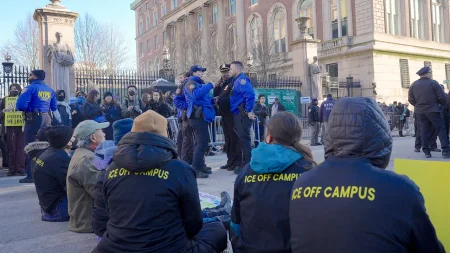From Nightmare to Memoir: Virginia Giuffre’s Journey Through Epstein’s Web
Virginia Roberts Giuffre’s posthumously published memoir, “Nobody’s Girl,” offers a haunting glimpse into the inner workings of Jeffrey Epstein’s sex trafficking operation. Before her tragic suicide earlier this year, Giuffre documented her painful journey from naive 16-year-old to survivor and advocate. What began as a seemingly innocent opportunity to train as a massage therapist quickly devolved into years of exploitation at the hands of Epstein and his accomplice Ghislaine Maxwell. Through her raw and unflinching account, Giuffre reveals how she was systematically broken down through psychological manipulation, financial dependency, and outright threats. “Every time I felt a twinge of discomfort,” she wrote, “one glance at Maxwell told me I was overreacting.” This memoir stands as Giuffre’s final testimony to the insidious methods predators use to groom and control vulnerable young people.
The transformation from hopeful teenager to “daily presence” at Epstein’s pastel-pink Palm Beach mansion happened through calculated steps. Initially working at Mar-a-Lago, Giuffre was recruited into what she described as “the sorority of Epstein’s girls.” When Epstein encouraged her to quit her job to work exclusively for him, his demands came with clear expectations: she would be “at his beck and call, day and night. No exceptions.” The power dynamic was established early and reinforced constantly. “When he said, ‘Jump!'” Giuffre recalled, “my response would have to be, ‘How high?'” But what solidified her entrapment was a chilling threat about her younger brother: “We know where your brother goes to school. You must never tell a soul what goes on in this house.” Through financial indebtedness and explicit threats, Giuffre found herself unable to escape the sophisticated predator’s web.
As Giuffre’s role in Epstein’s household evolved, she gained disturbing insights into the scale of his operation. She describes a moment when Epstein showed her his “trophy closet” – a hidden space behind a doorway containing floor-to-ceiling photos of young girls. “All of the girls were naked, many of them quite obviously underage, and the images were raunchy, not demure,” she wrote. The collection was so vast that “shoe-boxes in the corner held the overflow.” When showing this collection, Epstein didn’t need to speak; Giuffre interpreted his smug expression as saying, “Look at my conquests. Look at how powerful I am.” This grotesque display of exploitation demonstrated not just Epstein’s crimes but his pride in documenting them – evidence of his belief in his own untouchability and the depth of his predation.
The daily reality of life in Epstein’s orbit was one of constant sexual servitude disguised as employment. Giuffre details how her days were structured around Epstein’s demands: “Some days, the call would come in the morning. I’d show up, perform whatever sex acts Epstein wanted, then hang out beside his vast swimming pool while he got some work done. After a few hours, I’d usually be summoned to have sex with him again.” Maxwell’s role in this exploitation was direct and deliberate. According to Giuffre, Maxwell “kept a bin of vibrators and sex toys handy” and would often demand that Giuffre “attend to her sexually” when Epstein was present. The memoir paints a picture of calculated abuse hidden behind the veneer of wealth and power, where young women were treated as commodities to be used at will.
The world Giuffre describes was one where powerful connections served as both currency and protection. Maxwell, Giuffre writes, was “proud” of her relationships with famous individuals and “loved to talk about how easily she could get former president Bill Clinton on the phone.” While Clinton has denied any wrongdoing or knowledge of Epstein’s crimes, Giuffre’s account illuminates how Epstein and Maxwell’s social network served as both a lure for victims and a shield against scrutiny. Their ability to move among the elite gave them an appearance of legitimacy that helped mask their criminal activities. This intersection of wealth, power, and predation created a nearly impenetrable system that protected abusers while silencing victims – a system Giuffre eventually helped expose through her courageous legal battles and public testimony.
“Nobody’s Girl” stands as a powerful final testament from a woman who spent years fighting for justice and recognition. Giuffre never lived to see the full impact of her memoir, but her words continue the work she began in life – exposing the mechanisms by which powerful predators operate and the profound harm they inflict. Jeffrey Epstein died by suicide in his jail cell in 2019 while awaiting trial on federal sex-trafficking charges involving dozens of teenage girls and young women, some as young as 14. Maxwell was convicted in 2021 for her role in facilitating Epstein’s abuse and is currently serving a 20-year prison sentence. While neither faced the full extent of justice their victims deserved, Giuffre’s account ensures that their methods and crimes remain in the public consciousness. In sharing her story, Giuffre transforms from “nobody’s girl” to a powerful voice for countless survivors of sexual exploitation and trafficking who continue to seek justice and healing.









